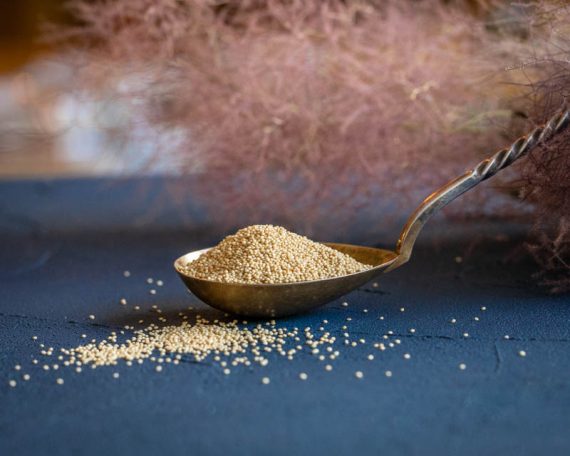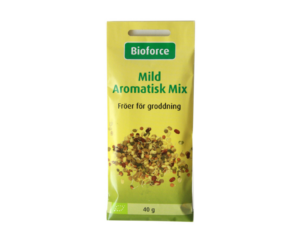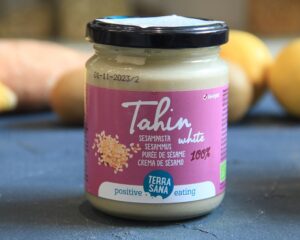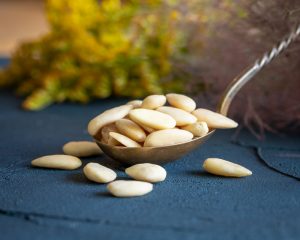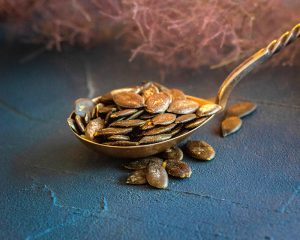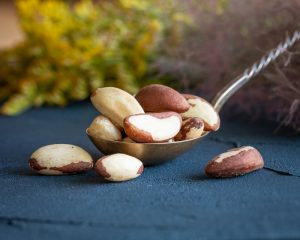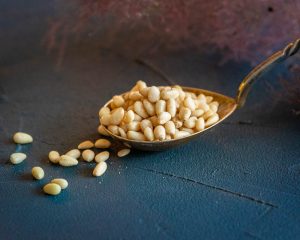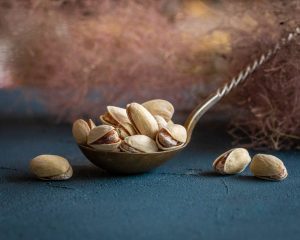

Organic amaranth seeds
From 1.04€
Amaranth seeds have a rich history of traditional use in various crops. The Aztecs and Incas used them in religious rituals and ceremonies, as well as in traditional medicine for their healing properties. Their colourful flowers were used for dyes and their cultural importance was often linked to themes such as immortality and endurance. These seeds are valued in some traditional dishes and cultural traditions, but their worldwide recognition as a nutritious and versatile ingredient has led to their inclusion in modern culinary trends.
Amaranth seeds are small but very nutritious. They are rich in protein, fibre, vitamins and minerals.
Benefits
Nutrient-rich: best source of iron, magnesium, calcium and phosphorus. It also contains B vitamins, especially folate, which are important for cell health.
High quality protein: amaranth is one of the few plant sources that provides the full spectrum of essential amino acids needed by the body. It is a great choice for vegetarians and vegans.
Digestive health: the dietary fibre in amaranth seeds promotes digestive health by encouraging regular bowel movements and preventing constipation.
Antioxidant properties: amaranth seeds contain antioxidants such as vitamin C and vitamin E, which help protect the body against harmful free radicals and oxidative stress.
Attention
Oxalate content: amaranth seeds contain oxalates, which can contribute to kidney stones in people who have a history of kidney stones. People prone to kidney stones should take amaranth seeds in moderation and drink enough water to reduce the risk.
Some people may be allergic to amaranth.
Use
Amaranth seeds can be cooked in the same way as rice or Bolivian balanda (quinoa). They simply need to be washed, mixed with water or stock and cooked until soft. They can be used as a base for salads, stews or as a garnish.
Rinse the seeds in running water. Cover with water and simmer for about 35 minutes, then leave to stand for about 15 minutes.
100% organic amaranth seeds
Energy value 1556 kJ/ 369 kcal
Fat 7,0 g
- of which saturates 1,0 g
Carbohydrates 59 g
- of which sugars 2 g
Fibre 7 g
Protein 14 g
Salt 0,01 g
Store in a cool, dry place.


